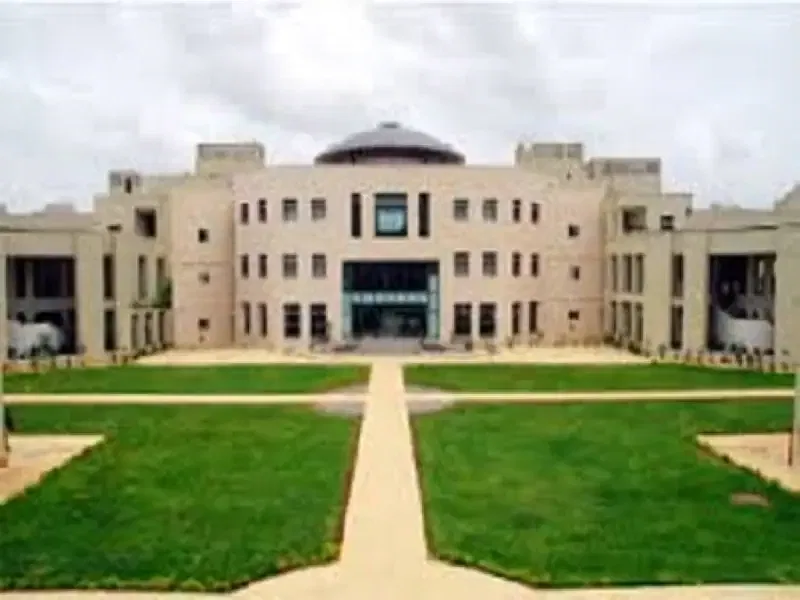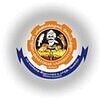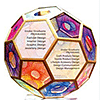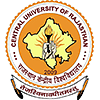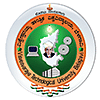M.Ed(Master of Education) Syllabus and Subjects

The M.Ed syllabus is crafted based on practical and theoretical study and learning of academics. The M.Ed course is designed primarily to help students become qualified in the educational sector and pursue careers in counseling, teaching, etc. The course helps them develop the technical skills needed to become educators. M.Ed Job scope provides extensive opportunities to pursue a range of careers in the education field.
Table of Contents
Semester-Wise M.Ed Syllabus
The M.Ed syllabus comprises two years, which includes four semesters. It includes core subjects and electives. The core subjects are the ones that are involved in psychology, education, human rights, and other foundation aspects. In the second year, candidates are allowed to choose specialisation based on their interest. The table below highlights M Ed syllabus:
M.Ed 1st year Syllabus
Below is a table for the M.Ed 1st semester syllabus and M.Ed second semester syllabus:
| SEMESTER I | SEMESTER II |
| Educational Psychology | Sociological Foundations of Education |
| Learner and the Learning Process | Philosophical Foundations of Education |
| Philosophical and Sociological Bases of Education | Teacher Education in Indian and Global Perspectives |
| Research Methodology in Education | Psychology for Individual and Social Development |
| Education in 21st Century | Statistical Methods for Data Analysis |
| Human Rights and Education | Educational Policy, Planning and Finance |
Second-Year M.Ed Syllabus
Below is a table for the second-year syllabus of M.Ed:
| SEMESTER III | SEMESTER IV |
| Elementary Education in India: Administration and Management | Advance Curriculum Theory |
| Quantitative Research and Educational Statistics | Environmental Education |
| Inclusive Education: Gender, Disability and Marginalization | Education for Human Values |
| In-Service Teacher Education in India | Institutions, Systems and Structures (Specialisation) |
| Issues & Curricular Concerns at Elementary level | Education Management and Planning at Secondary level (Specialisation) |
| Internship in Specialized Area | Information and Communication Technology in Education (Specialisation) |
M.Ed Subjects
M.Ed subjects mainly focus on combining practical and theoretical knowledge and a good training program to become teachers. Electives subjects in this program help to specialize in skill based courses to hone their career skills. In the list given below are M.Ed course syllabus divided into core and elective subjects:
M.Ed Core Subjects
- Philosophical Foundations of Education
- Advanced Educational Psychology
- Theory of Advanced Human Development
- Information and Communication Technology in Education
- Philosophical and Sociological Foundations of Education
- Introduction to Educational Research
- Educational Policy, Planning and Finance
- Advance Research Methods
- Quantitative Research and Educational Statistics
M.Ed Elective Subjects
- Elementary Education
- Teacher Education
- Academic Writing
- Curriculum Studies
- Guidance and Counseling
- Distance Education and Open Learning
- In Teacher Service
- Educational Technology and ICT
- Gender Studies
- Advanced Curriculum Theory
M.Ed Subjects In Detail
The M.Ed course syllabus focuses on the aspects of advance development of teaching skills and research methodologies. Below are few topics taught in M.Ed syllabus:
| M.Ed Subjects | Topics |
| Educational Psychology | Psychological perspective of education, Relevance of Psychological Principles to Pedagogical Interventions, Psychology of Learning and Intelligence, Salient features of Pavlov's, Skinner's and Gestalt theories of learning. |
| Research Methodology in Education | Elements of Research, Research Methods, Research Process, Analysis and interpretation (elementary statistical methods) of data. |
| Education in 21st Centuary | Changing Demography and Education, Economic Transformation, Vocationalisation of Education, : Teacher-Education for the Present and Future, Educational Reforms. |
| Guidance & Counselling | Meaning, Types and Theoretical Foundation of Guidance and Counselling, Adjustment and Mental Health, Types, Needs and Problems of Special Children, Problems and Intervention Programmes. |
| Education Studies | Theoretical Perspectives of Education as a Discipline, Education as Interdisciplinary Knowledge, Socio-cultural Context of Education, School Context. |
Master of Education Course Structure
M.Ed course syllabus is structured as a core and elective subject comprising of an introduction teaching fundamentals, and specializations. The students can choose electives based on their specialization and areas of interest. The M Ed syllbabus course structure is highlighted below:
- Perspectives (Core)
- Specializations (Optional)
- Practicum
- Research
Master of Education Teaching Methodology and Techniques
The M.Ed course syllabus involves a great amount of practical work along with theoretical knowledge. Aspirants are encouraged to prepare dissertations, join internships, pursue academic writing, and attend workshops and seminars as a part of the M.Ed syllabus. The methodology generally includes:
- Workshops
- Seminars
- Case studies
- Practical classes
- Internships
- Projects
M.Ed Projects
The main ME.d projects involves field practice, which helps in the practical understanding of an education system. Case studies involve concepts taught in their course and a detailed analysis of the same, and an analysis of teaching and the student's psychological behaviour. A few of the topics taken as projects are:
- A Study Of Self-Concept, Frustration And Academic Achievement Among Adolescents
- A Study Of Teachers' Attitude Towards Teaching In Professional Colleges
- A Study Of Emotional Intelligence Of Adolescents Studying In Various Govt. AndPrivate Schools
M.Ed Reference Books
M.Ed course syllabus includes NCERT books, government policies, and journals that help students understand the subjects. Below is a list of some of the essential readings.
| Name | Author |
| Modern Philosophies of Education McGraw Hill, New Delhi | Brubacher, J.S |
| Building of Philosophy of Education Englewood, Cliffs Prentice Hall, Inc. | Broudy, H.S |
| The Concept of Education, Routledge, United Kingdom | Peters, R.S. |
| The Doctrines of Great Educators | Rusk, R. |
| Democracy and Education: An introduction to the philosophy of education. New York: Macmillan. | Dewey, J. |
Top M.Ed [Master of Education] Colleges
Top Education Entrance Exams
M.Ed Fee Structure
FAQs on M.Ed Syllabus and Subjects
Q: What is the subject in M Ed?
Q: Can I do MEd without doing B Ed?
Q: What is the difference between B Ed and M Ed?
Q: Is M Ed valid in India?






